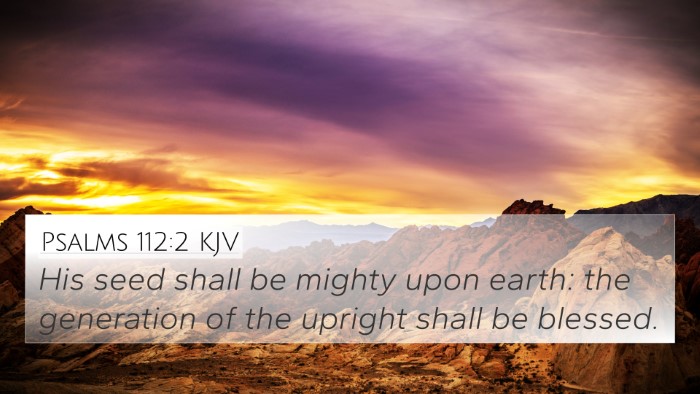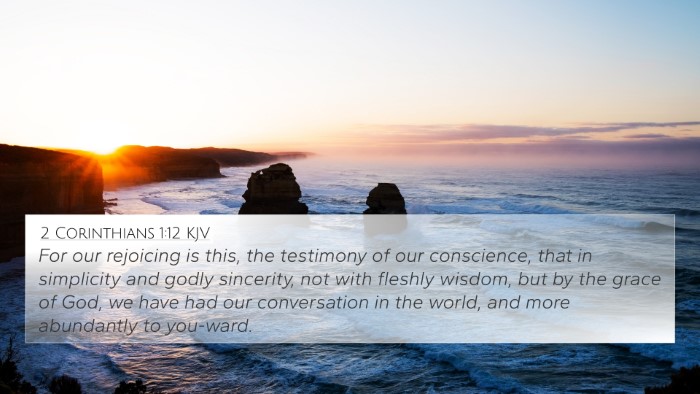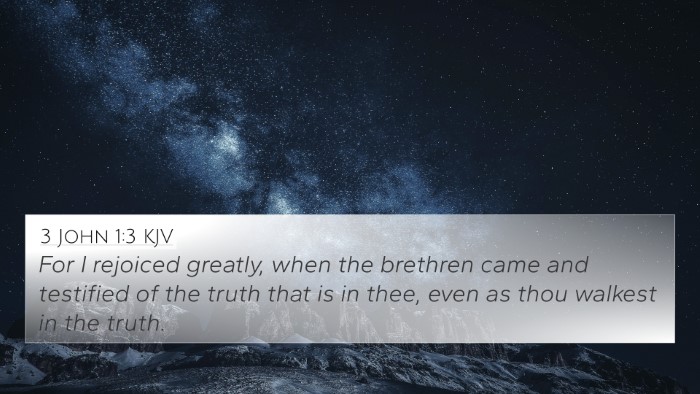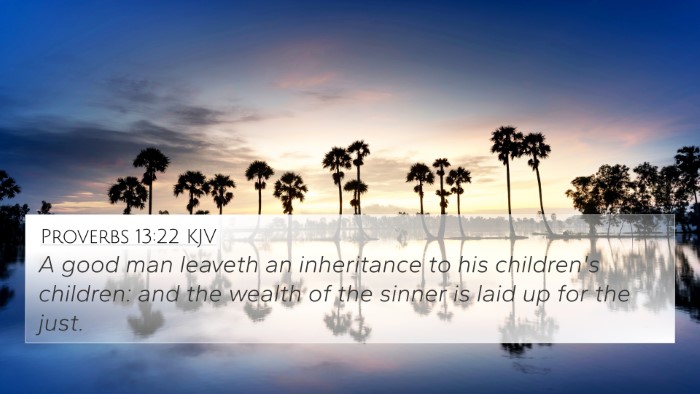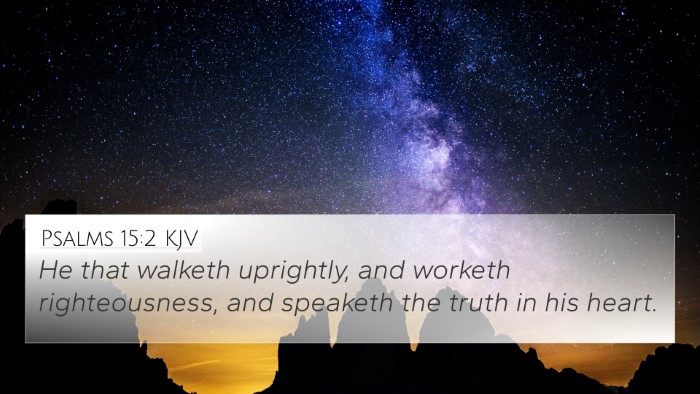Understanding Proverbs 20:7
Bible Verse: "The just man walketh in his integrity: his children are blessed after him." (Proverbs 20:7)
This verse emphasizes the significance of integrity and righteousness, portraying a just man as one whose moral standing not only influences his own life but also has a profound impact on his descendants.
Summary of Insights
The verse speaks to the dual themes of personal integrity and generational blessing. Public domain commentaries provide rich interpretations that highlight various aspects of this biblical truth.
Insights from Commentaries
-
Matthew Henry:
Henry explains that a just man demonstrates consistency in his moral conduct and lives by a righteous standard. The integrity of the father is a stabilizing force that blesses his children — providing not only a moral framework but also prosperity and security.
-
Albert Barnes:
Barnes notes that the blessings referred to can be both material and spiritual. He emphasizes how the righteous life generates a legacy of favor and virtue, as children grow up observing and inheriting their parent’s integrity, which ultimately leads them towards a blessed life.
-
Adam Clarke:
Clarke discusses the implications of living in integrity and how it acts as a guiding principle for families. He underlines that a just man's conduct has the potential to create a ripple effect, promoting not just temporal benefits but also spiritual inheritance for future generations.
Cross-References to Proverbs 20:7
To deepen our understanding of Proverbs 20:7, we can explore several cross-references that illuminate its themes of integrity and familial blessings:
- Proverbs 10:1: "A wise son maketh a glad father: but a foolish son is the heaviness of his mother."
- Proverbs 11:21: "Though hand join in hand, the wicked shall not be unpunished: but the seed of the righteous shall be delivered."
- Proverbs 13:22: "A good man leaveth an inheritance to his children's children: and the wealth of the sinner is laid up for the just."
- Psalm 37:26: "He is ever merciful, and lendeth; and his seed is blessed."
- Proverbs 14:26: "In the fear of the Lord is strong confidence: and his children shall have a place of refuge."
- Exodus 20:6: "And showing mercy unto thousands of them that love me, and keep my commandments."
- 1 Timothy 5:8: "But if any provide not for his own, and specially for those of his own house, he hath denied the faith, and is worse than an infidel."
Thematic Connections
The implications of Proverbs 20:7 resonate throughout the scriptures, establishing several thematic connections, including:
- Integrity: Integral to the just man’s nature, which reflects God’s righteousness.
- Blessings on Children: A recurrent theme emphasizing the role of parental righteousness in bestowing blessings.
- Generational Influence: The lasting impact of one's character traits on following generations.
Exploring Further Connections
This verse encourages further exploration through the lens of cross-referencing Biblical texts. For those studying the scriptures, tools such as a bible concordance or bible cross-reference guide can be invaluable. They aid in:
- How to use Bible cross-references: Linking verses helps identify similarities and patterns throughout the Bible.
- Cross-reference Bible study: Delve deeper into the context and relationships between verses.
- Identifying connections between Old and New Testament: Various teachings reflect the core principles of righteousness and integrity.
Conclusion
In conclusion, Proverbs 20:7 serves as a powerful reminder of the importance of living a life of integrity. The blessings that arise not only enrich the life of the just man but also extend to his children, fostering a legacy of righteousness. Through the lens of public domain commentaries, we gain insight into the intricate dynamics of this verse and its connections to broader Biblical themes, making it essential for anyone seeking a deeper understanding of scripture.



